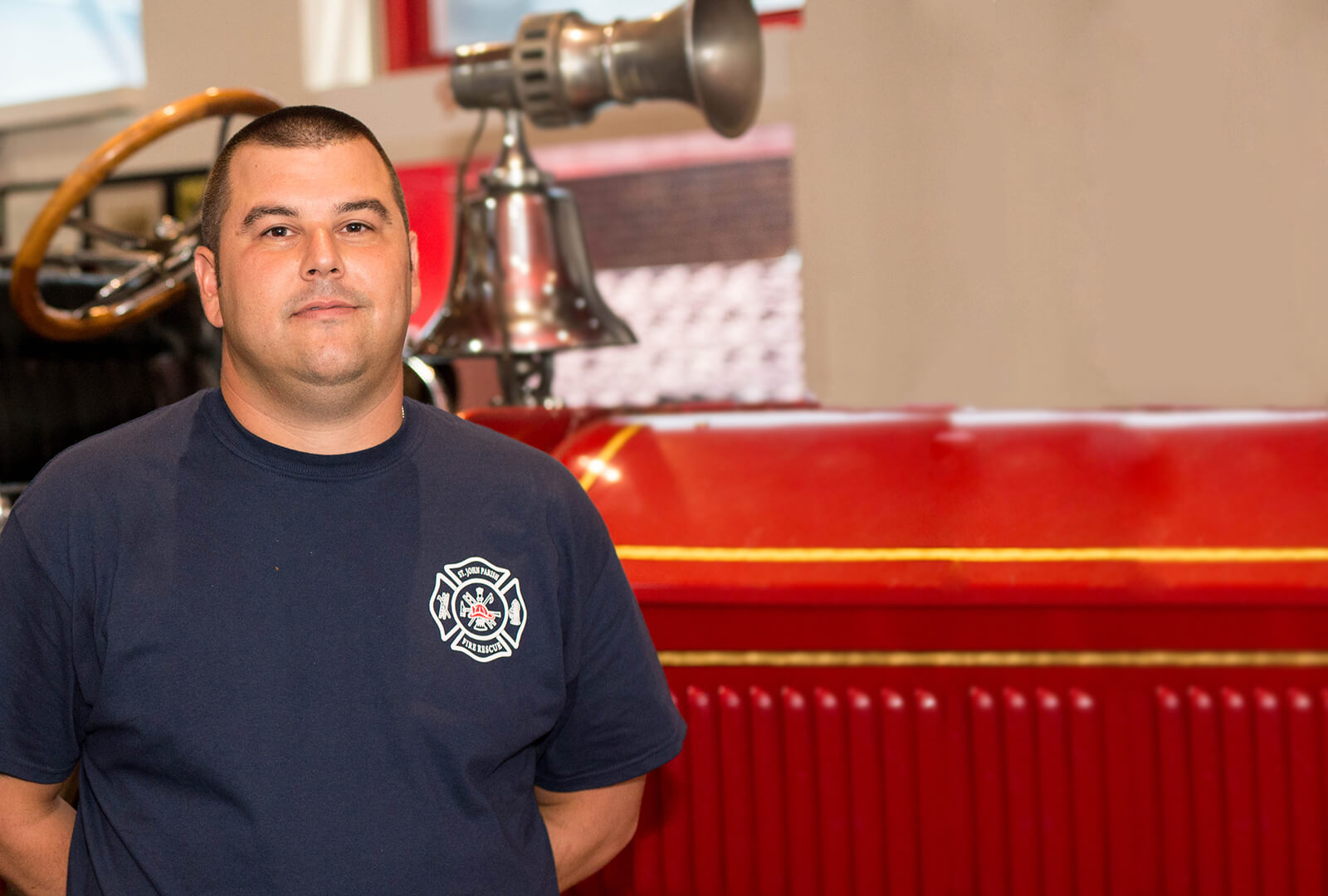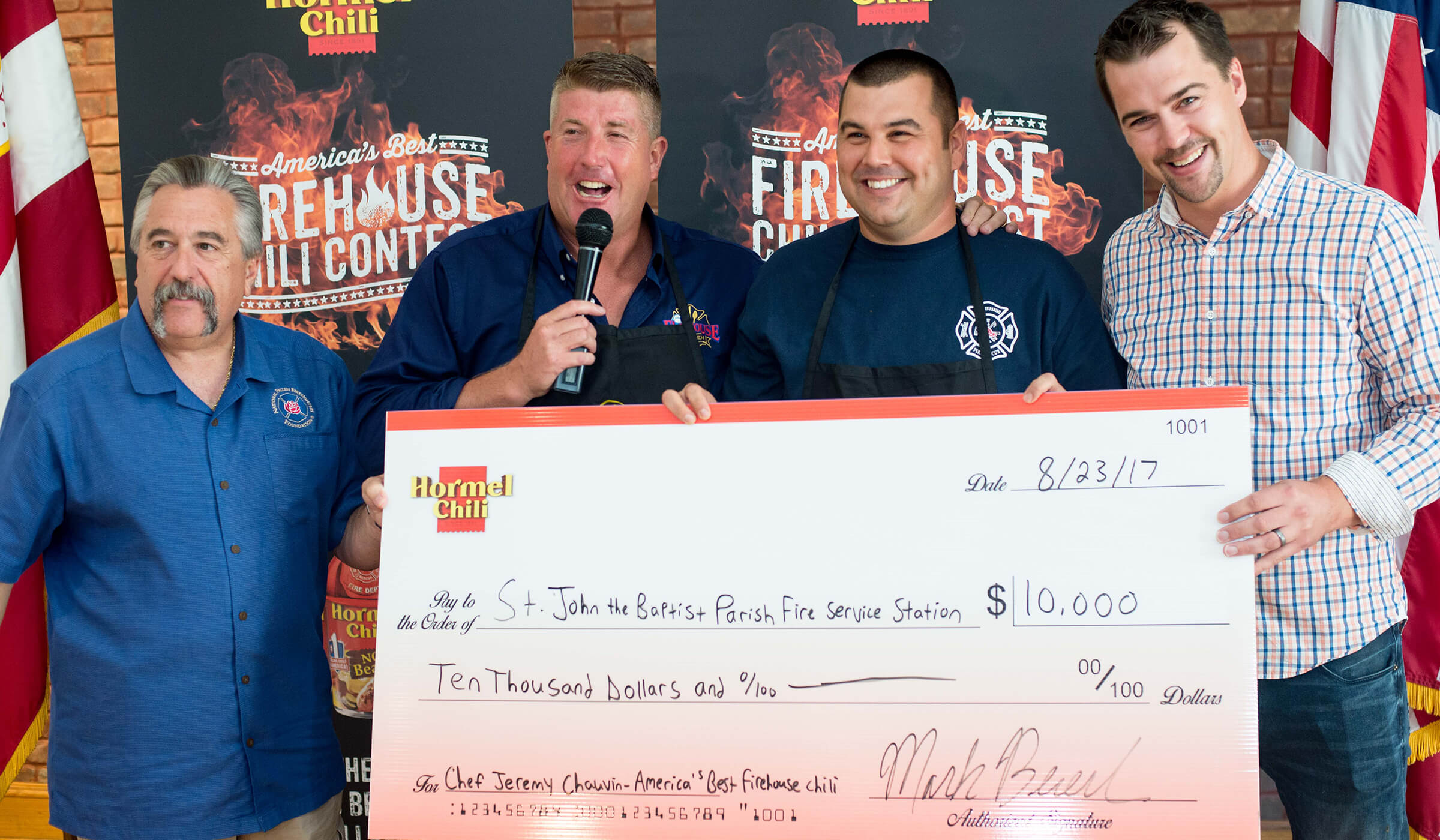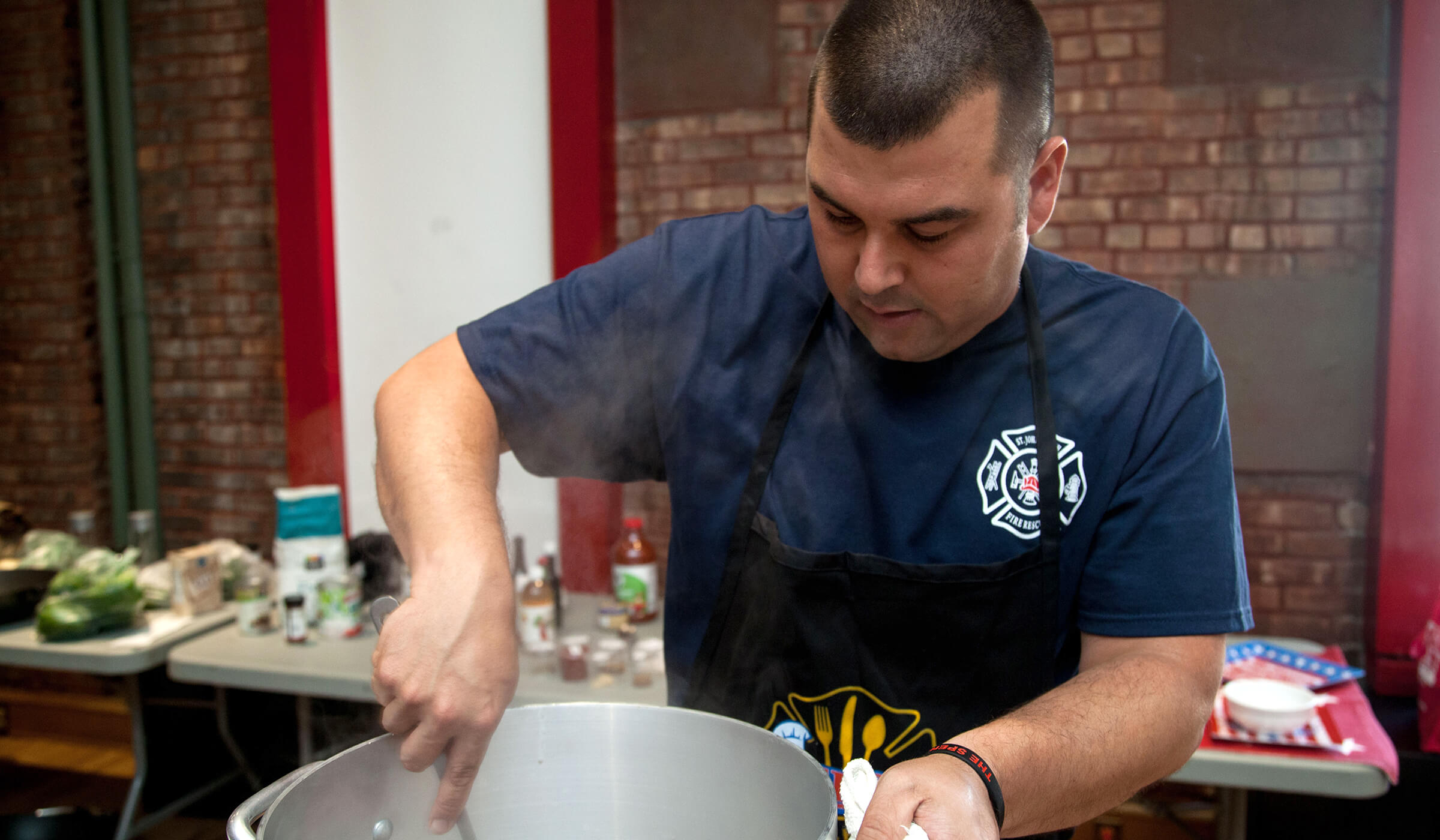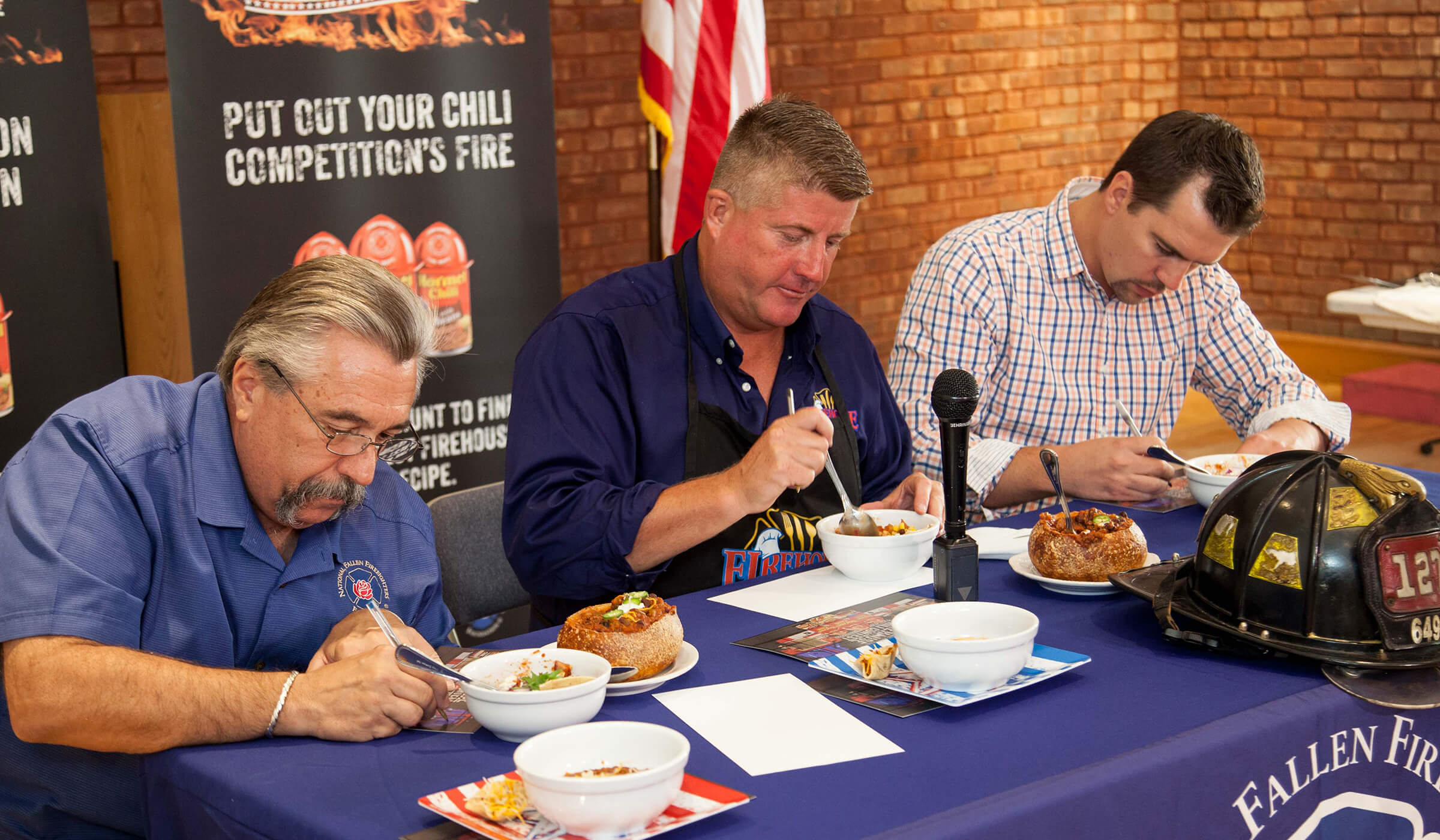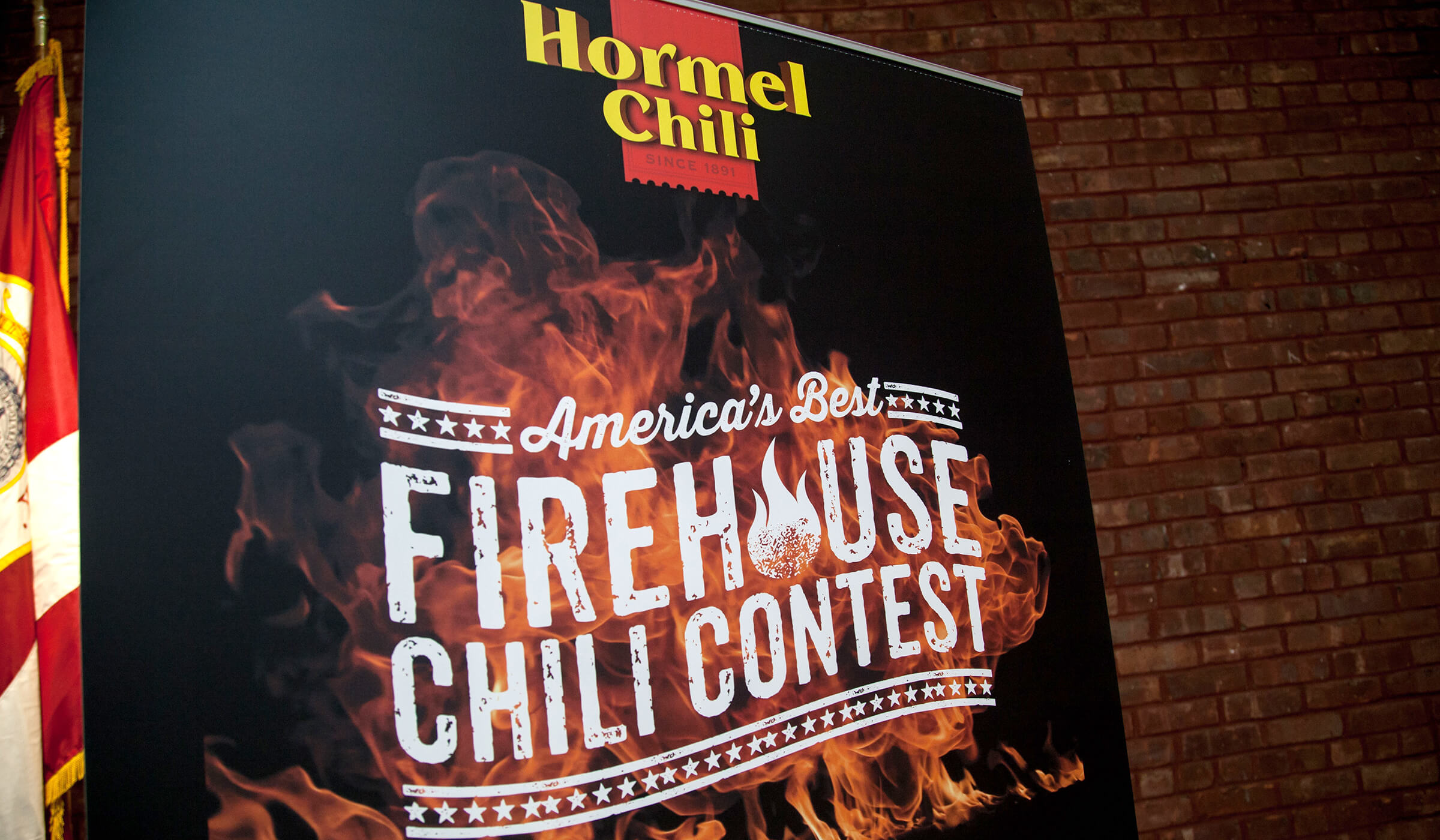Sitting down to share a home-cooked meal is a time-honored tradition among firefighters. Born of practicality, it allows them to work long shifts and stay close to the station in the event of an emergency. It also serves what may well be a loftier purpose. Communal meals help build an espirit de corps among men and women who put their faith in each other – and their lives on the line – every time they go to work. For them, any meal could be their last.
It happened that way for Spencer Chauvin, a Louisiana district chief. A minor car accident in August 2016 turned fatal when a bus came upon the site of the crash, clipping the firetruck and slamming into another vehicle. A passenger was killed, two firefighters were injured, and Spencer, 36, fell 30 feet to his death.
“I miss him,” says Jeremy Chauvin, a fellow firefighter who happens to be one of Spencer’s younger brothers.
He is perhaps more aware than most of the dangers of the job. “We’ve all grown up with this in our lives,” Jeremy says, explaining that his father was a fire chief, and another of Jeremy’s brothers was a firefighter.
In addition to following in his father’s footsteps, Jeremy is doing his part to feed his co-workers. He can often be found in the kitchen of his station house, preparing recipes handed down from his grandfather.
“He was a big cook,” Jeremy says. “He always cooked for a lot of people, and he was great at it.”
In addition to being nervous, Jeremy was awed by what was his first trip to the Big Apple. “It’s such a different world,” he says, comparing it to Reserve, Louisiana, where his station is located. He was a long way from the New Orleans area and his wife and four children, thrust into an unwelcome spotlight. “If it weren’t for my brother, I wouldn’t have done it,” he says.
When all was said and done, his chili earned the top prize. For his part, Jeremy achieved his goal: paying tribute to Spencer. “I just want people to remember his sacrifice,” he told the New York Times Magazine soon after winning. Cooking is one of the ways he carries on for his late brother, he said.
That and his willingness to respond to calls for help, day or night, despite the potential cost. For someone who doesn’t like attention, it’s a curious career choice.
But Jeremy doesn’t see it that way, saying he just does what the job requires of him.
“I don’t think of myself as a hero,” he says. “But it definitely makes you feel good when things go right.”
